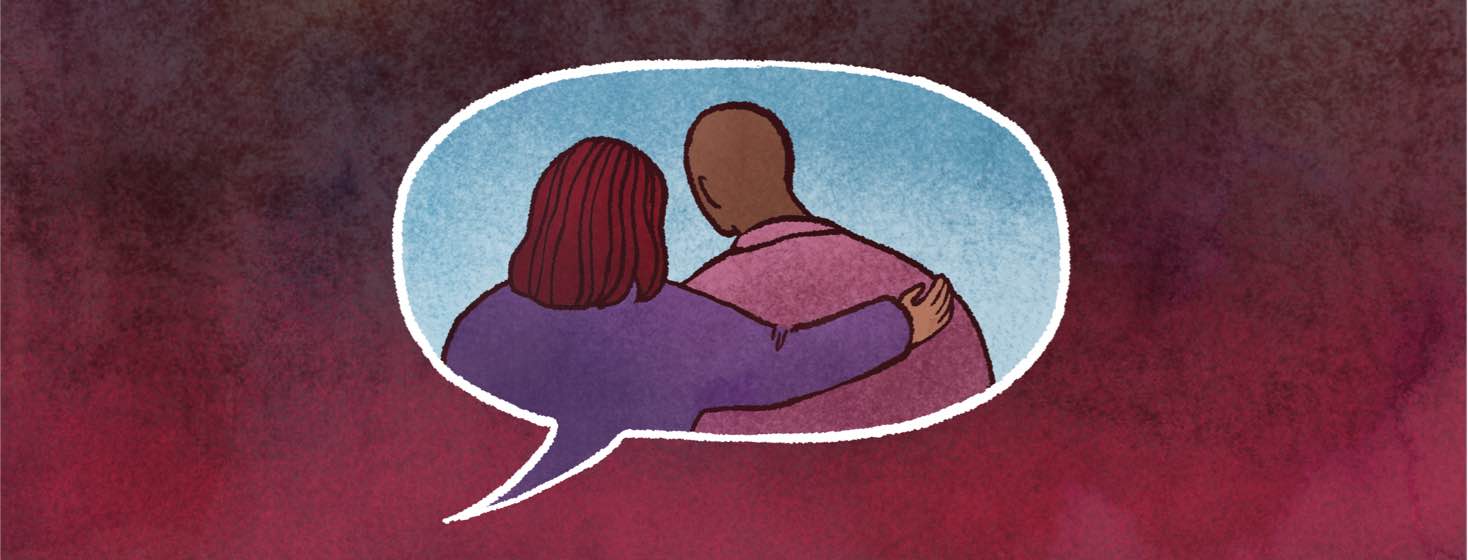Let's Talk About Cancer: Part 2
Jim was diagnosed with prostate cancer in 2017 at the age of sixty-three. In his series, Let's Talk About Cancer, he shares the challenges of talking about the disease, how it can mess with the mind, and ways it can affect family and friends. Read Part 1 and Part 3.
Keeping it to yourself
I’ve heard of some cancer patients who want to keep their condition completely private to the extent of not even telling their partners. As my wife was with me when I learned about my condition, this was not a conversation I had to have. Actually, it was more the case that I was so shaken I used to litter subsequent conversations asking what the doctor had actually said.
I would just add here - and perhaps this is just because I’m a journalist - but when I see a doctor these days, I always take notes. Of course, you will get a doctor’s report, but I find it handy to keep a record.
On one occasion my PSA level took an unexpected rise, which gave me a severe case of the collywobbles. I forgot to write it down. So later on when I’d calmed down, I was unable to dredge up my score, which got me worrying further. A call to the doc soon set me straight.
Talking to my daughter
My first awkward conversation was with my daughter, who at the time was 14 years old. I was extremely unhappy about telling her I had prostate cancer. The talk got off to a very bad start when following my equivocation, she said, "OK, well at least you don’t have cancer." I then had to tell her that actually I did.
She took it well, and while it’s not a topic that comes up much, she knows generally about my condition and how I’m doing. With my cancer currently stalled, that takes the pressure off. Should things take a turn for the worse, then the conversations with my daughter may become a little more complicated.
Frankly, it is something I really fear, as both my parents died when I was quite young. My mother died when I was nineteen, struck down by an aneurism, and my father followed two years later when his heart packed in. I really don’t want to go too soon and leave my daughter in the way my parents left me.
Coming out with my diagnosis
I’ve heard others say that when it comes to revealing their cancer, it’s something akin to ‘coming out.’ They try to parcel up the information, deliver it initially to close family, and then create a list gradually letting more friends know, while at the same time swearing them to secrecy.
Frankly, it sounds like an exhausting strategy, as people inevitably ‘do tell’ even when they promised they wouldn’t. And suddenly you are talking to someone who clearly knows your secret when they really shouldn’t.
It’s a tricky call, because some people who you don’t tell may become very upset and feel bad that they weren’t there to help you through the initial crisis. Others, perhaps even close friends, will find you having cancer something they are completely unable to deal with, will want to avoid talking about it, and may drift way from you.
Some people will be there for you, and some will find it beyond them. You have to learn to be forgiving.

Join the conversation